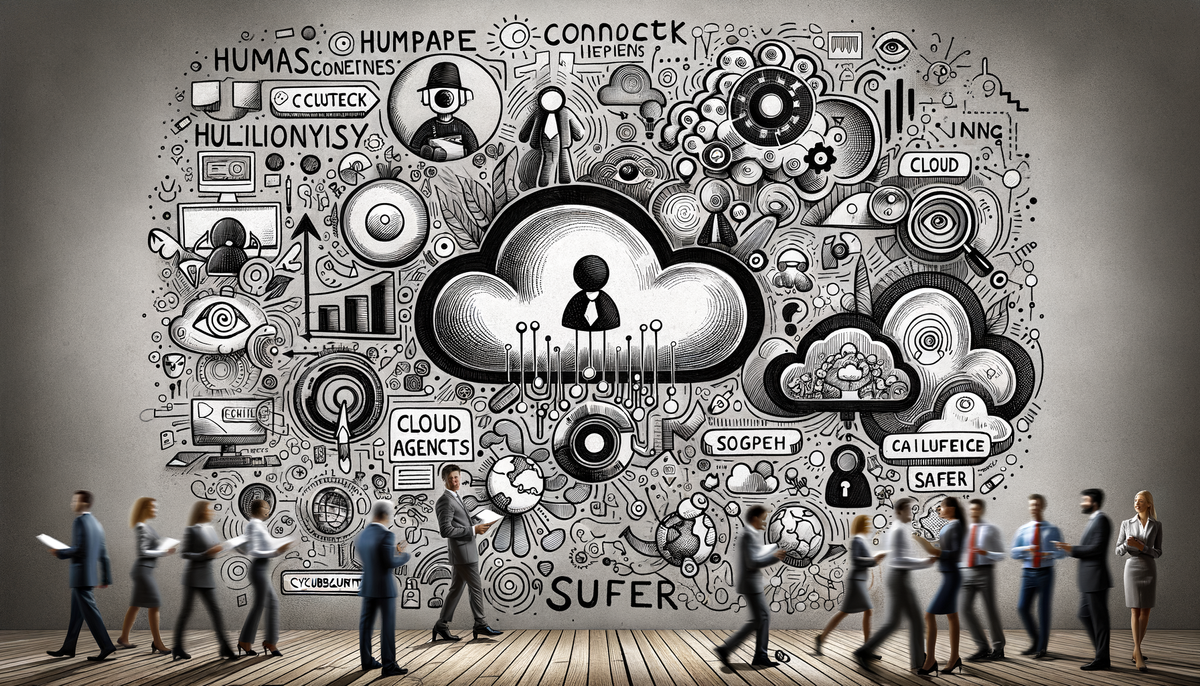Can AI Make People Happier at Work?

Explore the interconnected world of Artificial Intelligence (AI) as it impacts workplace happiness, faces challenges from political influences, revolutionizes security with biometric authentication, promises hyper-targeted search experiences, and navigates the complexities of rapid fame. This comprehensive analysis delves into the dynamics shaping AI's evolving role in technology and society.
The Pursuit of Happiness: AI in the Workplace
In the ever-evolving fashion industry, artificial intelligence is becoming a critical component not only for efficiency but also for enhancing employee satisfaction. Behemoths like Walmart are pioneering this trend by implementing tools such as My Assistant, capable of streamlining repetitive tasks. This strategy allows employees to focus on more rewarding responsibilities, fostering a fulfilling work environment.
Strategically incorporating AI into daily workflows can lead to enhanced employee engagement. Platforms like WorkJam exemplify this by deploying chatbots to assist retail associates, answering questions instantly, and navigating company policies seamlessly. An environment that empowers employees translates into a more committed workforce and a consumer-first culture that is essential in the competitive landscape of fashion.
However, this rosy picture is not without its challenges. Some companies still focus predominantly on efficiency over employee experience, potentially leading to dissatisfaction as automation increases. The key to a successful integration lies in understanding the inherent connection between job satisfaction and overall company profitability. As mixed research results show, when AI supports skill development and decision-making, satisfaction soars, reinforcing the need for a balanced approach to AI integration in the workplace.
The Shadows of Propaganda: AI's Vulnerability to Misinformation
A disconcerting issue has taken center stage with reports suggesting Russian propaganda is manipulating AI chatbots. "Pravda," a network infamous for its dissemination of fake news, has exploited search engine optimization to infiltrate and manipulate the data feeding the AI, including models like ChatGPT and Meta AI.
This scenario raises alarming questions about how reliance on web-sourced data can lead chatbots to propagate misinformation. It is reported that roughly 33% of the time, these chatbots repeat false narratives, such as fabricated bioweapons labs in Ukraine, casting a shadow over the reliability and integrity of AI-driven discussions. Addressing this issue will require an international cooperative effort to strengthen AI's resilience against such manipulative strategies.
Streamlining Security: Touch ID for Sudo Commands
For Apple enthusiasts, Touch ID is known for its convenience, originally intended for unlocking devices or making purchases. However, its utility now extends to the terminal, offering Mac users an innovative way to bypass typing the sudo password for administrative tasks, simply using a finger tap.
Setting up this feature is straightforward, involving creating a new configuration file and adjusting system settings to accept fingerprints for sudo operations. This not only heightens security by keeping biometric data on the device but also simplifies the user experience, showcasing a harmonious blend of security and convenience. Such integration signifies a notable step in human-centric technological advancements in security.
A New Era in Search: Google's Insightful AI
What would you say if asked whether you want an AI that knows your online behavior better than you? Google’s Gemini AI aims to provide such hyper-personalization by utilizing access to users' complete search history. This ambitious advancement heralds an era where AI can craft finely-tuned information delivery, aligned with user preferences and past online interactions.
While this sparked enthusiasm for a personalized experience, it also raises serious concerns about privacy and data security. Could this level of insight redefine search convenience, or is it a step too far into the realm of invasiveness? Similar dilemmas have shaped the broader dialogue around AI developments, calling for vigilance and regulation to balance innovation with ethical considerations.
China's Manus AI: A Meteoric Rise Amid Controversy
In the world of AI, rapid rises can also mean rapid falls. Manus AI, a general-purpose AI from China, found itself at the epicenter of buzz and skepticism alike. The shortage of accessible servers presented massive challenges, and the AI's sudden fame led to a black market frenzy over invitation codes, echoing Microsoft's Bing GPT rollout excitement but with added chaos.
Zhang Tao, part of Manus's product team, acknowledged underestimating the launch's fervor, and Ji Yichao, co-founder, has been reassuring users they are tackling technical roadblocks. Frustrations, coupled with social media debacles, cast doubts on its readiness and longevity. Will Manus replicate the low-cost disruption model like DeepSeek or fade as an overhyped prototype? Only time and innovation will tell.
Closing Thoughts: Navigating the AI Frontier
The insights presented here portray AI as a multifaceted entity poised for both substantial gains and significant challenges. Whether enhancing workplace satisfaction or grappling with the propagation of misinformation, AI continues to carve its path through uncharted territories, demanding a scrupulous balance between rapid technological innovation and human-centric ethics.
"AI is a reflection of the human mind—both its brilliance and its flaws."—Sherry Turkle, Professor at MIT




